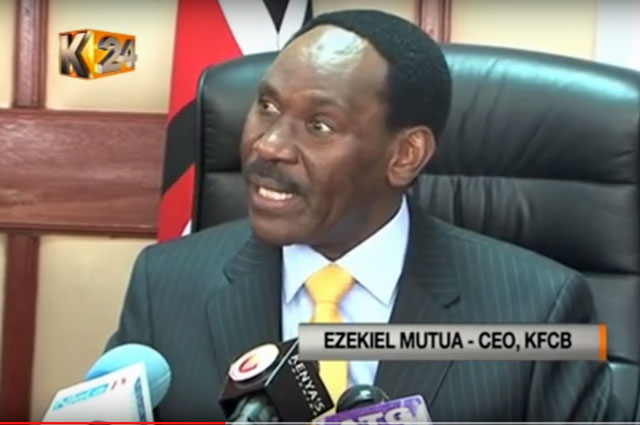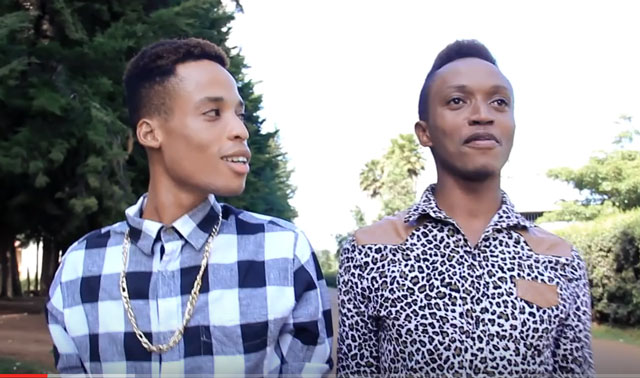Art Attack: Why we shot ‘Same Love’ video in Kenya
Colin Stewart is a 45-year journalism veteran living in Southern…

Kenya is one of the many African countries that — out of ignorance and denial — regard homosexuality as un-African, immoral, and unnatural. The country largely considers homosexuality to be taboo and repugnant to its cultural values and morality.
Such homophobia should not go unchallenged, so the Kenyan music group Art Attack recorded an appeal for acceptance, tolerance and a better understanding of homosexuality with Africa.
“We are not telling people to be gay,” one member of Art Attack told the NoStrings podcast. “We are saying, ‘Let them be.’ ”
Art Attack’s song “Same Love” is about same-sex rights, LGBT struggles, gender equality, gay struggles and civil liberties for all sexual orientations.
Those values are a far cry from the homophobic attitudes of Kenyans who demonize, criminalize and discriminate against people on the basis of their sexual orientation. Kenyan law even provides up to 14 years in prison for homosexual activity, and 21 years in certain aggravated circumstances.
On YouTube, the video for “Same Love” has attracted about 116,208 views and over 859 positive and negative comments. Gay Times describes the music as “a remix of Macklemore’s ‘Same Love,’ with Kenyan rappers Art Attack replacing his lyrics with their own – while the music video features home-shot footage of a gay and a lesbian couple, shots from the TV series ‘Empire’ and footage from riots and equality marches.”

The video caused an outrage amongst homophobes in the country, who cried out that the video was promoting immorality and thus should be banned. This moved the Kenya Film Classification Board to ban the video of the song, and issued a letter to Google to take down the video from YouTube, but Google refused and replied in a follow-up letter that banning the video would be an infringement on freedom of expression.
The Nigerian LGBTIQ podcast NoStrings interviewed a member of Art Attack to discuss the video, its concept, and the controversy that the video generated.
In the interview, the leader of the music group, who described himself as a rapper and songwriter, said of the group:
“We call ourselves Art-tivist because, most of our stuffs are geared toward social change, and motivated mostly around what we see around the social circles in Kenya.
For his safety at home in Kenya, his name is not used in the podcast.
When asked why he advocates for LGBT rights, he said:
“I felt the need to do a song about LGBT rights after some of my friends who are gays and lesbians started telling me about the bad things that were experiencing in Kenyan society. I live in Kenya, and I know how and what life is like for them, so I decided to record a song that will speak positively to the situation.”
He spoke about threats and negativity he experienced as a result of the video:
“We knew that, obviously, these will not be well appreciated by the larger Kenyan population who kicks against homosexuality, but we needed to do what we have to do. But yes, it was such a huge risk, there has been a lot of controversy especially around the video of the song, because of its erotic content and overall message.”
Although many people complained that Art Attack is encouraging homosexuality in their song, he denied it:

“We are only encouraging a positive message of love and respect, and discouraging violence against gay people. We are not telling people to be gay, but we are saying, ‘Let them be.’ ”
Outside of his music and his advocacy, he also spoke about his own personal view of homosexuality:
“I don’t mind. I don’t think I completely agree with what [homosexuals] do.
“I am not gay myself. I love women. I have a girlfriend. But, hey, let people do their thing. That’s what we have always wanted. Let people be themselves.”
Art Attack is not planning on releasing an entire LGBT-related, LGBT-friendly album, but if they are pushed, they may end up doing more LGBT songs, he said.
To listen to the full Art Attack interview, download it from No Strings podcasts.
To join future No Strings discussions/conversations, contact No Strings here:
The No Strings podcasts, which can be streamed or downloaded, provide a voice for the LGBTIQ community in Nigeria; they are the first of their kind in Nigeria. They are presented in the form of a traditional radio program that chronicles the struggles, tells the stories, and reports on issues affecting the lives of LGBTIQ Nigerians.
Related articles on this blog about No Strings podcasts:
- Nigerian teen came out to family, now regrets it (Feb. 15, 2016)
- Bisexuals in Nigeria: ‘We are not cheats!’ (Jan. 29, 2016)
- 2 failures: Priest, witch doctor try to ‘cure’ gay man (Jan. 7, 2016)
- To hell (and back!) with a gay Nigerian student (Jan. 3, 2016)
- Gay youth now homeless in Nigeria after entrapment (Dec. 24, 2015)
- Gay man trapped, beaten in Nigeria, where it’s too common (Dec. 14, 2015)
- Coming out in Nigeria: ‘Hate, isolation, loneliness may come’ (Nov. 24, 2015)
- Gay Nigerian: ‘My mum is still very much devastated’ (Nov. 3, 2015)
- Focus of Nigerian podcast: Gains and pains of coming out (Oct. 21, 2015)
- ‘Veil of Silence’: When LGBTI Nigerians spoke out (Sept. 30, 2015)
- Behind the scenes: Filming a British-Nigerian gay love story (Sept. 9, 2015)
- Denial, prayer, fasting — growing up LGBTIQ in Nigeria (Aug. 27, 2015)
- A life in Nigeria: ‘Discovered, abandoned, depressed’ (Aug. 18, 2015)
- Podcast exposes attack on LGBTI Nigerians at hotel (Aug. 11, 2015)
- LGBTI depression — topic for latest Nigerian podcast (Aug. 1, 2015)
- Relationship problems: Topic of Nigerian LGBTIQ podcast (July 24, 2015)
- Nigeria: Why the West keeps its hands off (July 4, 2015)
- Nigerian film maker: ‘Yes! You can be an LGBTIQ Christian’ (June 22, 2015)
- Nigerian podcast: I was outed, jailed, bailed, shunned (June 15, 2015)
- Hate, gender non-conformity: Topics of Nigerian podcast (June 5, 2015)
- Nigerian podcast, website join fight against homophobia (May 22, 2015)




Jamaica: ‘Human rights … should never be put to a vote’